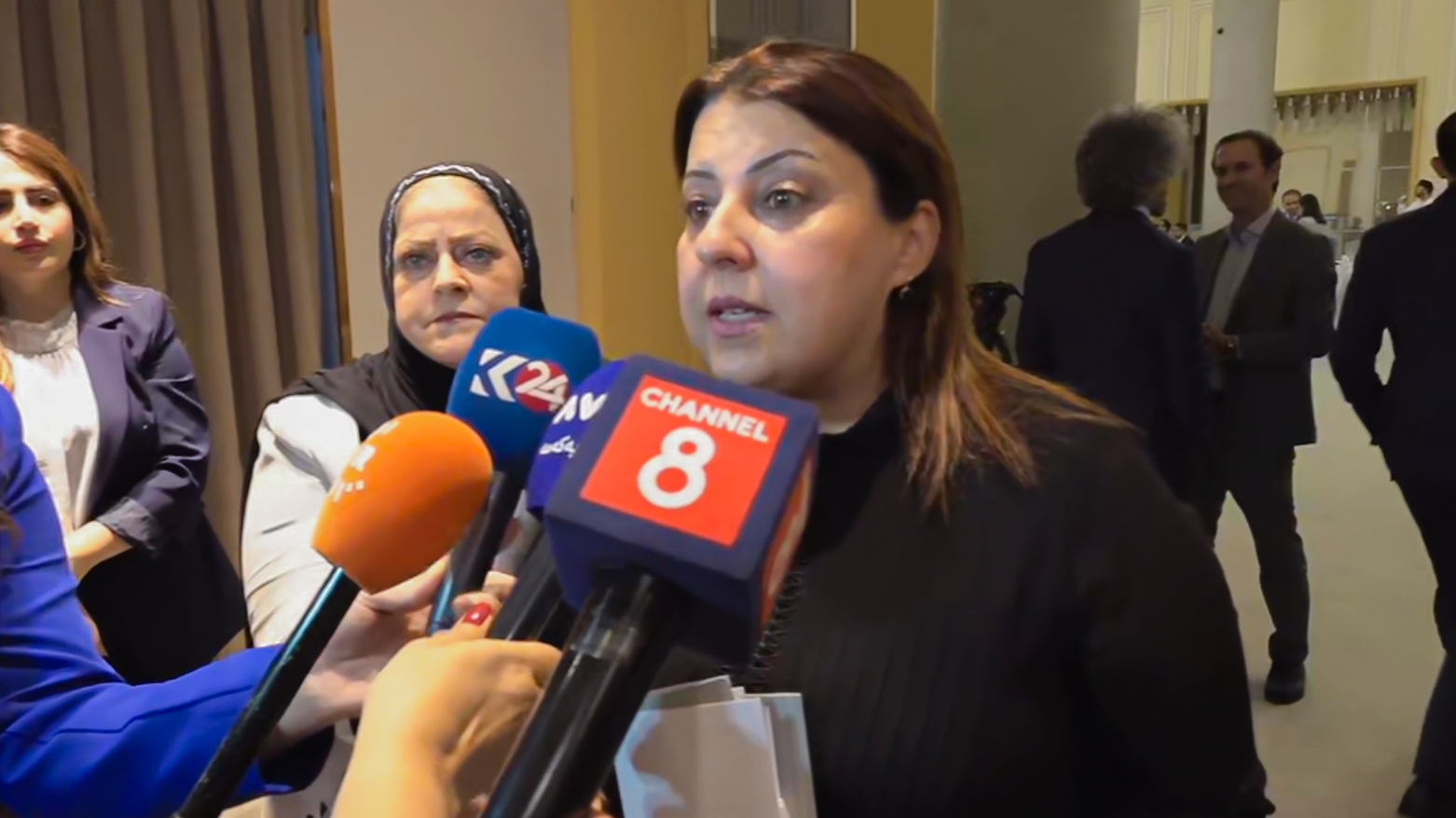KRG Pledges to Boost Agricultural Exports, Strengthen Quality Standards
The minister highlighted that these efforts are part of a broader strategy to increase economic diversification and create sustainable livelihoods for rural communities, while simultaneously raising the profile of Kurdistan’s agricultural sector on the global stage.

ERBIL (Kurdistan24) — The Kurdistan Regional Government (KRG) is prioritizing the expansion of agricultural exports and improving the quality of locally produced crops, according to Begard Talabani, the KRG Minister of Agriculture and Water Resources.
Speaking at a press conference on Monday, Talabani emphasized the government’s commitment to supporting farmers and facilitating the sale of their produce abroad.
“Our policy focuses on branding and promoting the agricultural products of Kurdish farmers to international markets,” Talabani said. “We are providing all necessary support for those who want to export their crops, while also working to enhance quality standards to protect and elevate the reputation of the Kurdistan Region.”
The minister highlighted that these efforts are part of a broader strategy to increase economic diversification and create sustainable livelihoods for rural communities, while simultaneously raising the profile of Kurdistan’s agricultural sector on the global stage.
The Kurdistan Region has long relied on agriculture as a foundational component of its economy, particularly in rural areas where farming is both a primary source of income and a cultural heritage. In recent years, the KRG has pursued a multi-faceted strategy to modernize the sector, expand export opportunities, and strengthen quality control standards.
This approach is intended not only to generate revenue but also to ensure that Kurdish agricultural products meet international market requirements, thereby enhancing competitiveness and global recognition.
Central to the strategy is the concept of branding Kurdish produce, such as grains, fruits, vegetables, and livestock products, under a unified regional identity. This involves developing certifications, packaging standards, and promotional campaigns that convey quality and reliability to foreign buyers.
By streamlining the export process, the KRG aims to reduce bureaucratic hurdles and provide farmers with the technical and logistical support necessary to reach international markets efficiently.
In parallel, the government has invested in research and extension services to improve crop yields and enhance product quality. Partnerships with academic institutions, local cooperatives, and private sector investors are being strengthened to introduce modern farming techniques, irrigation technologies, and post-harvest handling methods.
These initiatives are designed to raise productivity while ensuring that exported goods maintain the high standards demanded by global consumers.
The KRG’s export-oriented agricultural policies are also part of a broader economic diversification effort aimed at reducing reliance on oil revenues. By creating alternative income streams for rural communities and encouraging private sector participation, the government hopes to foster economic resilience and stimulate job creation in the region.
Additionally, promoting high-quality Kurdish agricultural products abroad contributes to soft power diplomacy, enhancing the Kurdistan Region’s visibility and reputation internationally.
Through these comprehensive measures, the KRG seeks to position Kurdish agriculture as a model for sustainable development in the Middle East, combining economic growth, rural empowerment, and international market integration.